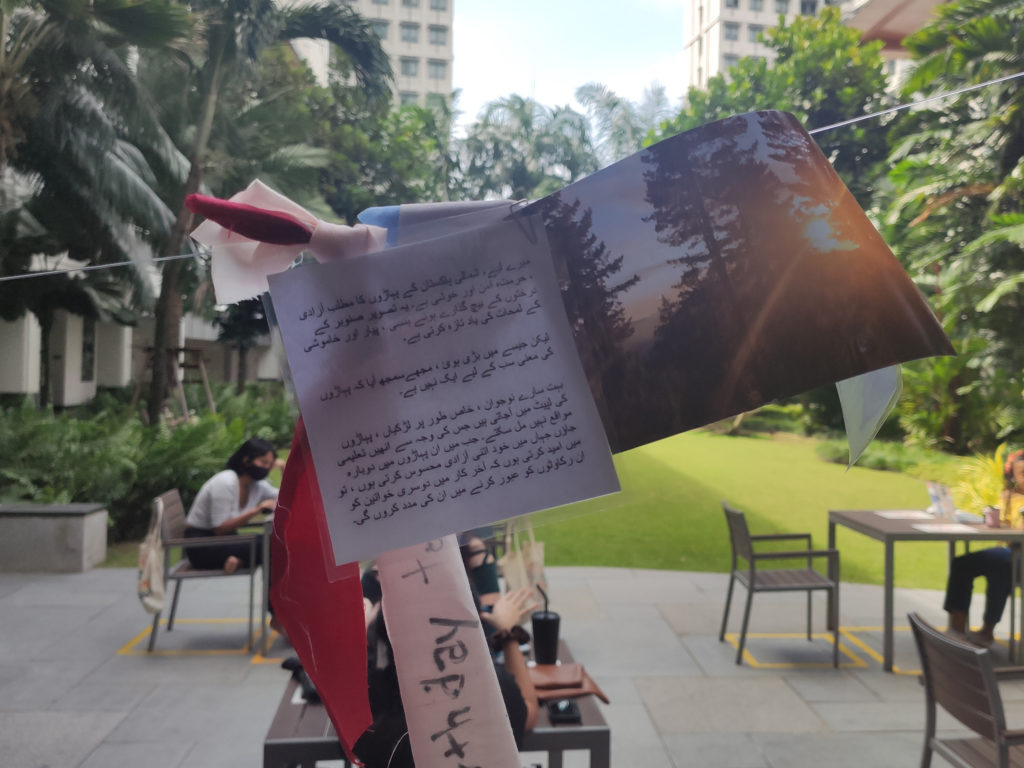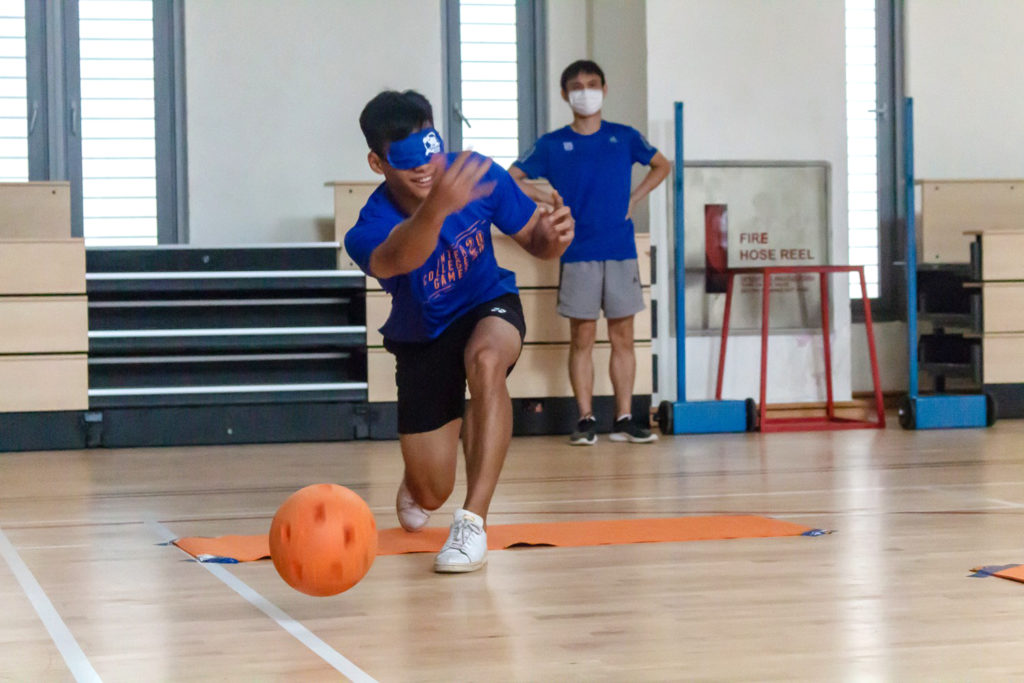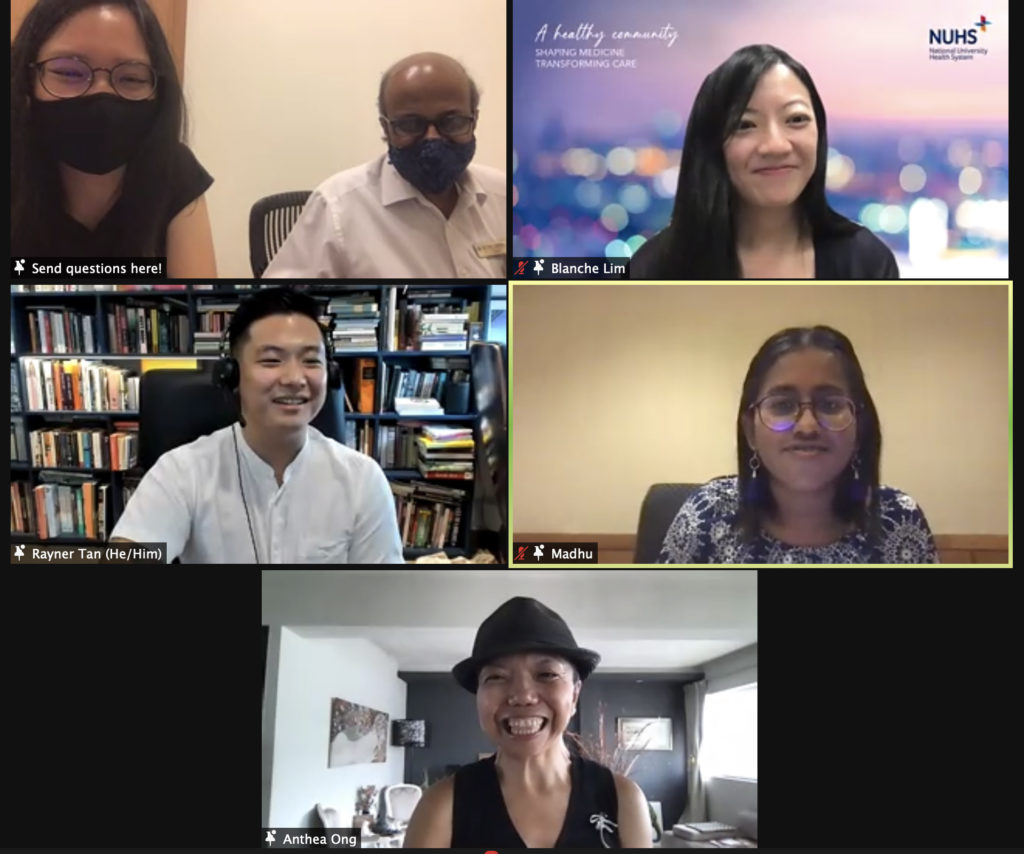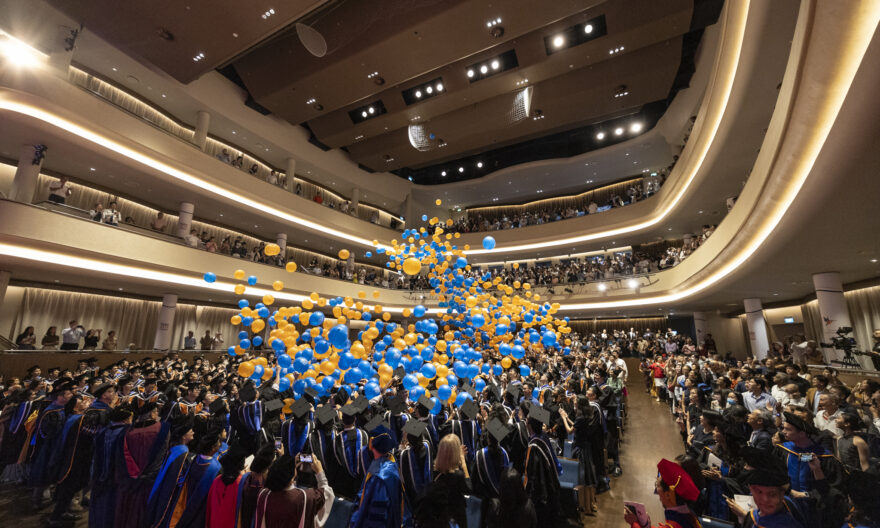Building diversity and inclusion: Yale-NUS College celebrates Diversity Week
Diversity Week at Yale-NUS College is an annual tradition that celebrates the rich diversity of the College’s residential community and beyond. Each year, the Dean of Students (DOS) office, alongside students and student groups, come together to catalyse conversations on building diversity and inclusion, and embrace the multiplicity of different cultures and ideologies. This year, the fourth edition of Diversity Week was held from 25 to 29 January 2021.
“Initially, I believed it would be a scaled down version this year due to COVID-19 safety guidelines. However, the Yale-NUS community impressed me with their dedication and passion—we actually have more events this year than last! The biggest change is the use of Zoom for many of our sessions; yet, this has conversely allowed us to engage more broadly across our community,” Associate Dean of Students Dr Cory Owen shared.
Diversity Week featured a plethora of different programmes, such as art and photo exhibitions, film screenings, performances, workshops and discussions with invited guests. For example, Yale-NUS multilingual magazine Tònes rolled out a photo exhibition, ‘Is Memory Material’, that explored the intersection of memory and language. It showcased a curation of photographs sourced from the Yale-NUS community, alongside captions displayed in peoples’ native languages and their English translations.
 A display at the Tònes’ photo exhibition, ‘Is Memory Material’. Image provided by Lim Tian Jiao.
A display at the Tònes’ photo exhibition, ‘Is Memory Material’. Image provided by Lim Tian Jiao.
Many of this year’s line-up helped to introduce and familiarise our students with different groups in society they might otherwise have less exposure to. Through such activities and conversations, students learnt life skills and mindsets such as empathy and the acceptance of others, which can be applied both within and beyond college life.
One such event was a session of goalball, a Paralympic team sport designed for individuals with a visual impairment, organised by the Athletics and Recreation department. While the rules are deceptively simple – score by rolling a ball equipped with bells into the opposing team’s goal – the gameplay is anything but easy.
 Participants wore blindfolds during the goalball session to understand how it is like for players with a visual impairment to move and progress through the game. Image by Glen Ang for Yale-NUS College.
Participants wore blindfolds during the goalball session to understand how it is like for players with a visual impairment to move and progress through the game. Image by Glen Ang for Yale-NUS College.
Ms Joan Hung, a national goalball athlete, explained that the “social model of disability relates disabilities to constraints in the form of attitudinal and environmental barriers”. In contrast, the medical model of disability defines disability as a medical condition and the problem lies within the individual.
“In goalball, everyone has a disability when using the medical model but not with the social model. When playing against someone with a Visual Impairment (VI) in an environment explicitly made for VIs, who has the disability? The VI or the sighted?” she asked.
She added that goalball serves as a great starting point of reference for one to understand “how people with a VI adapt to operate in a world where the majority are sighted”. Adlan Syaddad (Class of 2024) echoed her thoughts, “I appreciated how difficult the game actually was. We don’t realise how much we depend on our sight for the most basic things, and to have that taken away was quite uncomfortable. Still, I found it to be a rewarding experience.”
Another aspect of disabilities was explored through a panel discussion on literature and its use to connect and empower persons with disabilities (PWD), which was organised by students Martin Choo and Xie Yi Hui (both Class of 2023). Ms Cassandra Chiu, a psychotherapist and social advocate with a VI, and Dr Jessica White, an award-winning author, were special guests.
“Literature can be both illuminating and empowering. It is a medium to share one’s experiences with the world, and for others to get a glimpse of the ups and downs of another’s life. It also bridges the gap between worlds; the formation of a biculturalism of sorts, where an individual, disabled or not, can craft their own unique place in the world through writing and gain hope for the future,” Martin explained.
Another key event of Diversity Week was a workshop and a panel on public health (in)equity and vulnerable communities in Singapore. It focused on healthcare issues involving migrant workers, domestic workers, sex workers, people living with HIV/AIDs and those with mental health conditions. The panellists included notable public health advocates: National University of Singapore (NUS) Yong Loo Lin School of Medicine Professor of Medicine Paul Tambyah, NUS Yong Loo Lin School of Medicine Chief Resident Dr Blanche Lim, former Nominated Member of Parliament Ms Anthea Ong and NUS Saw Swee Hock School of Public Health Postdoctoral fellow Mr Rayner Tan.
 From top right (clockwise): Ms Rachel Tan and Prof Paul Tambyah, Dr Blanche Lim, Ayyappan Madhumitha, Ms Anthea Ong, and Mr Rayner Tan. Screenshot provided by Kelly Ng.
From top right (clockwise): Ms Rachel Tan and Prof Paul Tambyah, Dr Blanche Lim, Ayyappan Madhumitha, Ms Anthea Ong, and Mr Rayner Tan. Screenshot provided by Kelly Ng.
Ayyappan Madhumitha (Class of 2023) and Residential Life Officer at the DOS office Ms Rachel Tan organised these sessions to facilitate a discussion on how access to healthcare differs for various groups, and explore areas of improvement. During the workshop with Prof Tambyah, students were provided different mock scenarios and tasked to exchange perspectives on the solutions needed to tackle healthcare access issues for communities on the margins.
One of the participants, Tng Pei Ling (Class of 2021), shared that the workshop covered a comprehensive range of pressing issues in Singapore’s healthcare system within a short span of time. “I learnt about healthcare issues with regard to insurance coverage and administrative barriers to care – issues that I previously knew little about,” she said.
“We hope the programmes encouraged students to think about the social determinants of health (e.g. socioeconomic class), and see social barriers, such as stigma, as resulting in inequitable health outcomes,” Rachel added.
Besides shedding light on diverse perspectives and groups, the College also took the opportunity to look within to strengthen its commitment in building an inclusive environment for teaching and learning. Separate faculty-only and student-only sessions were organised by the Diversity and Inclusion (D&I) committee to provide safe spaces for initial conversations, which will build the groundwork for further discussions later in the year where faculty and students will convene, demonstrating how Diversity Week is truly a springboard for continued dialogue.
Holding these focus groups were important in getting diverse voices from the ground to shape our classroom ethos statement. “We hope that this [classroom] ethos statement can bridge inputs from both groups [students and faculty]. These focus groups, and subsequent ones this semester, will not only help us produce and refine an ethos statement, but also provide spaces for students and faculty to collectively speak about issues of identity within our classrooms,” Isabella Nunez (Class of 2022), a member of the D&I committee, shared.





